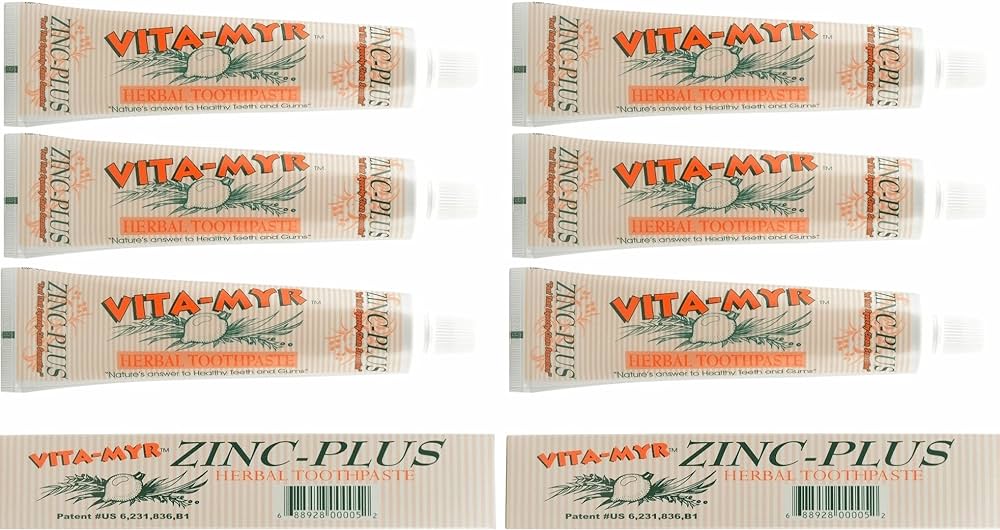
Introduction
When it comes to oral hygiene, toothpaste is an essential part of our daily routine. However, with the increasing popularity of natural and organic products, many people are questioning whether traditional toothpaste is the best option. In this blog post, we will explore the hype surrounding natural and organic toothpaste and determine if they are truly worth the buzz.
1. Understanding the Hype
Over the past few years, there has been a significant increase in the popularity of natural and organic toothpaste. Many individuals are now opting for these alternatives to conventional toothpaste, believing that they offer a safer and more effective solution for oral hygiene. But are they really worth the hype?
2. Differentiating Natural and Organic Toothpaste
Before delving into the worthiness of natural and organic toothpaste, it is important to understand the difference between the two. Natural toothpaste refers to products that are made from naturally derived ingredients, such as plant extracts and essential oils. On the other hand, organic toothpaste is made from ingredients that have been grown without the use of synthetic pesticides or fertilizers.
3. The Benefits of Natural and Organic Toothpaste
One of the main reasons why natural and organic toothpaste has gained popularity is due to the potential benefits it offers. These toothpaste options often contain fewer artificial additives, such as artificial sweeteners, preservatives, and foaming agents. This can be particularly beneficial for individuals with sensitive teeth or gums, as these additives can sometimes cause irritation.
3.1. Reduced Chemical Exposure
By choosing natural and organic toothpaste, individuals can reduce their exposure to potentially harmful chemicals. Conventional toothpaste often contains ingredients like triclosan, sodium lauryl sulfate, and artificial dyes, which have been linked to various health concerns. Natural and organic toothpaste, on the other hand, tends to avoid these chemicals.
3.2. Environmentally Friendly
Another advantage of natural and organic toothpaste is its environmental friendliness. The production of conventional toothpaste often involves the use of synthetic chemicals and contributes to pollution. By opting for natural and organic alternatives, individuals can support sustainable practices and reduce their carbon footprint.
4. The Effectiveness of Natural and Organic Toothpaste
While natural and organic toothpaste may offer certain benefits, it is essential to consider their effectiveness in maintaining oral health. The primary purpose of toothpaste is to remove plaque, prevent tooth decay, and freshen breath.
Summary
As consumers become more conscious about the ingredients they put in and on their bodies, natural and organic toothpaste has gained significant attention. Proponents of these products claim that they offer numerous benefits, such as being free from harmful chemicals, artificial flavors, and preservatives. Additionally, natural toothpaste often contains ingredients like baking soda, essential oils, and herbal extracts, which are believed to have antibacterial and anti-inflammatory properties.
However, skeptics argue that the effectiveness of natural and organic toothpaste in preventing cavities and maintaining oral health is not yet fully supported by scientific evidence. They point out that traditional toothpaste, which contains fluoride, has been extensively studied and proven to be highly effective in preventing tooth decay.

Ultimately, the decision to use natural and organic toothpaste comes down to personal preference and priorities. If you are concerned about avoiding certain chemicals or prefer a more eco-friendly option, natural toothpaste may be worth trying. However, it is important to consult with your dentist and ensure that the toothpaste you choose meets click here to investigate your oral health needs.
- Q: What is natural toothpaste?
- A: Natural toothpaste is made from ingredients derived from nature, such as plant extracts and essential oils, and does not contain artificial additives or chemicals.
- Q: What is organic toothpaste?
- A: Organic toothpaste is made from ingredients that have been grown without the use of synthetic pesticides or fertilizers, and are certified organic by a reputable organization.
- Q: Are natural and organic toothpastes effective in preventing cavities?
- A: Yes, natural and organic toothpastes can be just as effective in preventing cavities as conventional toothpastes. They often contain ingredients like fluoride, which is proven to fight tooth decay.
- Q: Are natural and organic toothpastes safe to use?
- A: Yes, natural and organic toothpastes are generally safe to use. However, it’s important to check the ingredients list for any potential allergens or sensitivities you may have.
- Q: Do natural and organic toothpastes whiten teeth?
- A: Some natural and organic toothpastes may contain whitening agents like baking soda or activated charcoal, which can help remove surface stains and brighten your smile.
- Q: Are natural and organic toothpastes more expensive?
- A: Natural and organic toothpastes can be slightly more expensive than conventional toothpastes due to the higher cost of sourcing organic ingredients. However, prices can vary depending on the brand.
- Q: Can natural and organic toothpastes help with sensitive teeth?
- A: Yes, many natural and organic toothpastes are formulated to be gentle on sensitive teeth and gums. Look for toothpastes with ingredients like aloe vera or chamomile, which can help soothe sensitivity.
- Q: Are natural and organic toothpastes better for the environment?
- A: Natural and organic toothpastes often use sustainable and eco-friendly packaging materials, and their production processes may have a lower impact on the environment compared to conventional toothpastes.

Welcome to my website! I’m Timothy Martens, a dedicated and experienced Periodontist specializing in dental braces, gum disease treatment, dental scaling, and toothpaste recommendations. With a passion for oral health and a commitment to providing exceptional care, I strive to help my patients achieve healthy and beautiful smiles.
